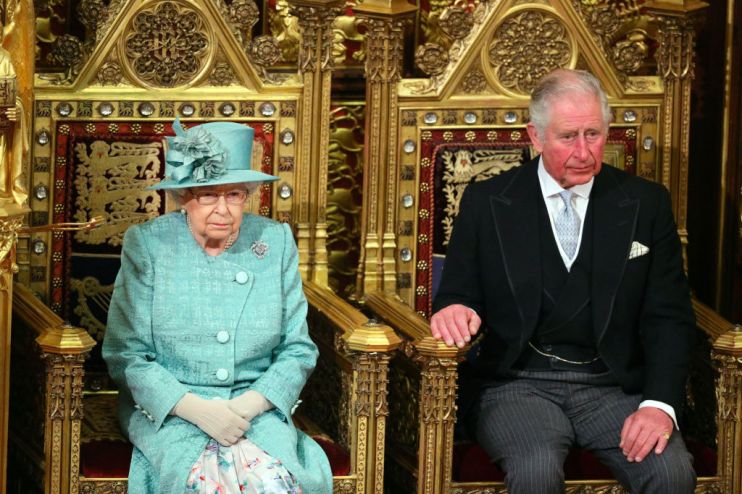Queen’s Speech promises wide-ranging public spending

A wide ranging Queen’s Speech has set out the government’s plans to boost NHS spending, slash business rates, implement stricter prison sentencing and to leave the EU.
Queen Elizabeth’s second state opening of parliament in three months began with the government’s promise leave the EU by the end of January.
Read more: NHS to be the centrepiece of Queen’s Speech
She said it was the government’s “top priority”.
“Thereafter my ministers will seek a future relationship with the European Union based on a free trade agreement that benefits the whole of the United Kingdom,” she said.
“We will also begin trade negotiations with other leading global economies.”
The Queen also emphasised the government’s commitment to enshrine in law a £33.9bn-per-year boost to NHS spending by 2022-23 and to improve the country’s level of social care.
She also laid out the government’s plans to recruit more nurses and doctors to the health service.
“A new visa will ensure qualified doctors, nurses and health professionals will have fast tacked entry to United Kingdom,” the Queen said.
“My ministers will seek cross party consensus on long-term reform of social care.
“No one who needs care will have to sell their home to pay for it.”
Much of the speech focussed on increasing public spending, including a pledge to invest in “in infrastructure and world leading sciences”, increase education funding per pupil and to roll out full fibre internet across the country.
This was matched with pledges to increase the national insurance threshold, cut business rates, increase tax credits for research and development and curb the power of unions to conduct strike action.
“The integrity and prosperity of the United Kingdom is of the utmost importance to my government,” the Queen said.
Reacting to the speech, CBI deputy director general Josh Hardie said: “Firms are desperate to deliver the investment and growth needed to level up the country.
“The burden of business rates weighs too heavily on many sectors – a review into them must be consultative, ambitious and wide ranging.
“To make this Queen’s Speech a real Christmas present for the country, it’s time to bring together all the investment, skills and creativity of the public and private sector and get to work.”
The British Chambers of Commerce (BCC) also welcomed the commitment to business rates reform.
BCC director general Dr Adam Marshall said: “UK business investment has fallen for the longest period in almost two decades.
“Many will welcome the short-term relief provided by further discounts to business rates, but the government should waste no time in setting up a comprehensive review of this outdated system.”
The speech also laid out a number of areas of legal reform, including creating a “constitutions, rights and democracies commission” and to repeal the fixed-term parliaments act.
The speech also confirmed the government’s plans to implement tougher sentencing for violent offenders and those convicted of terrorist offences.
“New sentencing laws will ensure the most serious violent offenders, including terrorist [offenders], serve longer in custodies,” the Queen said.
“Schools, police, health authorities will work together to prevent serious crimes.
“Those charged with knife possession will face swift justice and the courts will work better for those involved – including victims of domestic abuse.
“Legislation will be brought forward for victims of crimes and their families.”
New laws will also be created to sanction foreign officials and governments for human rights abuses, similar to America’s Magnitsky Law.
“My government will work to protect and expand the United Kingdom’s influence in the world,” the Queen said.
Sean McKee, Director of Policy and Public Affairs for London Chamber of Commerce and Industry, welcomed in particular the announcement that strike action would be curbed.
“London’s businesses recognise the right to strike, but want to see that right better balanced so it doesn’t bring a halt to the capital’s essential rail network,” he said.
“Our recent polling supports that, with nearly three quarters (73%) of London businesses backing a minimum service guarantee during times of strike.”
Jasmine Whitbread, Chief Executive of London First, praised the planned levels of infrastructure spending, but would like to see firm commitments to London projects.
“Businesses will be pleased that the Government is looking to take action on business rates, and is committed to developing the UK’s infrastructure, including gigabit capability,” she said.
Read more: How Boris Johnson became the heir to Blair
“Underpinning the domestic infrastructure will give firms the confidence to grow, invest, and trade.
“However, we will need to see a strong commitment to airport expansion, HS2, and Crossrail 2, which is critical to the capital’s future as a global city.”